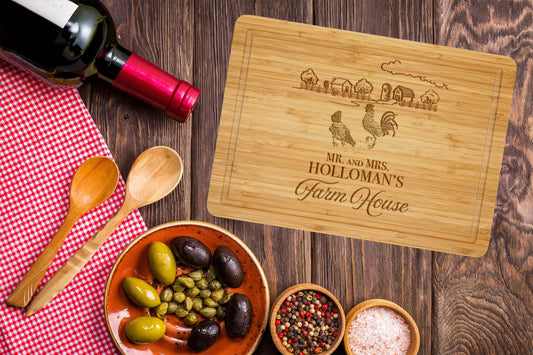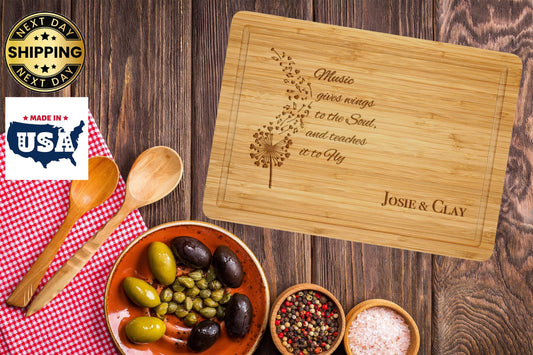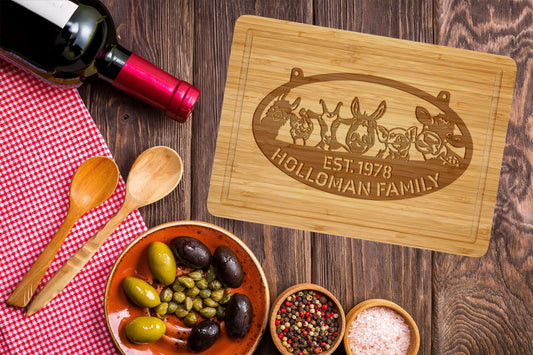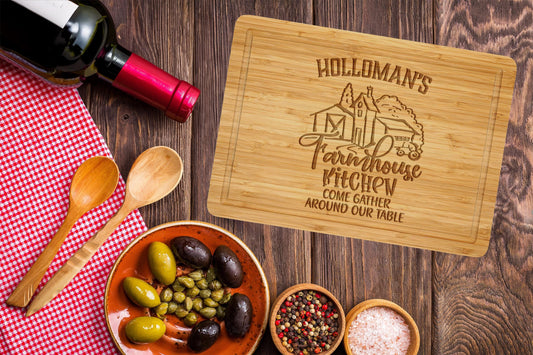The Importance of Cutting Boards in the Kitchen: Healthy and Safe Meal Preparation
Share

The Importance of Cutting Boards in the Kitchen: Healthy and Safe Meal Preparation
In every kitchen, cutting boards play a crucial role in ensuring that food preparation is both efficient and safe. Understanding the significance of using the right cutting board can greatly impact your cooking experience and food hygiene. Here, we delve into why cutting boards are essential for healthy and safe meal preparation.
Preventing Cross-Contamination
One of the most critical aspects of using cutting boards is preventing cross-contamination. Cross-contamination occurs when bacteria or other harmful microorganisms are transferred from one food item to another, often through shared surfaces. By using separate cutting boards for different types of food such as raw meat, vegetables, and bread you can significantly reduce the risk of cross-contamination. Color-coded cutting boards are particularly useful in distinguishing between different food groups and maintaining a safe cooking environment.
Maintaining Food Hygiene
Cutting boards are integral to maintaining food hygiene. Proper cleaning and maintenance of your cutting board ensure that harmful bacteria do not linger on its surface. For wooden cutting boards, washing with hot, soapy water immediately after use and drying them thoroughly can prevent bacterial growth. Plastic cutting boards can be washed in the dishwasher, which effectively sanitizes them. Regularly disinfecting your cutting board with a vinegar solution or diluted bleach can also help maintain a hygienic surface for food preparation.
Protecting Your Knives
Using the right cutting board also protects your knives, which is essential for safe and efficient cooking. Wooden cutting boards are gentle on knife blades, helping them stay sharper for longer. Bamboo cutting boards offer a similar benefit, being both hard enough to withstand rigorous chopping and soft enough to prevent excessive wear on your knives. In contrast, glass and ceramic cutting boards can dull knives quickly, making them less ideal for regular use.
Durability and Safety
Durability is another important factor when it comes to cutting boards. A high-quality cutting board can last for years with proper care. Wooden cutting boards are known for their durability and self-healing properties, which help close up minor cuts and scratches. Plastic cutting boards are also durable and can be resurfaced by sanding down the surface to remove deep grooves. Ensuring your cutting board is in good condition is essential for safety, as deep grooves and cracks can harbor bacteria and lead to unsafe food preparation conditions.
Choosing the Right Cutting Board
Choosing the right cutting board for your kitchen depends on your needs and preferences. Wooden cutting boards are great for their durability and aesthetic appeal. They are perfect for chopping vegetables, herbs, and even as serving boards for cheeses and bread. Plastic cutting boards are versatile and easy to clean, making them suitable for handling raw meat and seafood. Investing in a high-quality cutting board tailored to your specific needs will enhance your cooking experience and ensure safe food preparation.
Conclusion
In summary, cutting boards are indispensable tools in any kitchen, playing a vital role in ensuring healthy and safe meal preparation. By preventing cross-contamination, maintaining food hygiene, protecting your knives, and choosing the right cutting board for your needs, you can significantly improve your cooking practices. Remember, a well-maintained cutting board is key to both a safe kitchen environment and delicious, safely prepared meals.








